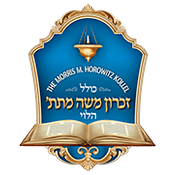Parshas Ki Savo 1


׳׳והי׳ כי תבוא אל הארץ אשר ד׳ אלוקיך נתן לך נחלה וירשתה וישבתה בה׳׳ דברים כו:א
“It shall be when you enter the land that Hashem your G-d will give to you as an inheritance and you will inherit it and settle there” Devarim 26:1
Parshas Ki Savo begins with the mitzvah of Bikkurim, the commandment to bring the first fruit of the seven species that ripen in one’s field every year, up to the Beis Hamikdash. Upon his arrival there, he would pronounce his thanks to Hashem for all of the blessing that Hashem had bestowed upon him. The Kli Yakar points out that the lashon of ׳׳וירשתה וישבתה׳׳ is found only once more in the Torah, in the Parsha regarding the appointment of a Jewish king. For after we inherit and settle in the land, ׳׳וישמן ישראל ויבעט׳׳ – “Yisrael will get fat and kick”, and cry out for a king like all the other nations. The Kli Yakar explains that the mitzvah of Bikkurim is coming to counteract this poisonous mindset that may overcome us. To shatter our haughty hearts caused by our inheritance and consequent settling of the land. As soon as we get comfortable our natural tendency would be to claim that the land of ארץ ישראל is but an inheritance from our forefathers and forget about Hashem. Therefore the pasuk clarifies .׳׳אל הארץ אשר ד׳ אלוקך נתן לך נחלה׳׳ The mitzvah of Bikkurim comes into effect only after we enter the land that Hashem has given us as a gift in order for us to better keep His commandments. However our hearts may misguide us into feeling that the land is ׳׳וירשתה׳׳ our birthright and a entitlement passed on to us from our fathers, ׳׳וישבתה בה׳׳ and we may then settle down in comfort. These two factors may cause us to forget about Hashem, therefore Hashem has commanded us to keep the mitzvah of Bikkurim, which is meant to instill in us a feeling of הכנעה – subservience to Hashem, coupled with an awe and the need to publicly declare בהרמת קול , in a loud voice, that we understand that the opportunity to live in ארץ ישראל and reap and enjoy it’s fruits is not a birthright rather a pure gift from Hashem, given on condition that we safeguard His commandments.
The Rambam nails the point home. He writes in מורה נבוכים (The Doctor for the Perplexed) that the reason why the קריאה by Bikkurim begins with the narrative of ׳׳ארמי אבד אבי׳׳ is because when things are good and the sailing is smooth, we tend to quickly forget about Hashem, ׳׳וישמן ישורון ויבעט׳׳ . He writes that everybody knows that it is the way of people who are brought up in comfort and without worry to be haughty, lash out at their benefactors and leave the straight and true path. The only way to combat this laxity, says the Rambam, is for us to remember the hard times that have befallen us and how the only way we survived was because Hashem in His infinite kindness was there for us every step of the way. This is how we can stay focused despite our comfort as we live happily in the land of ארץ ישראל.
The mitzvah of קריאה when bringing Bikkurim, which we learn out from this week’s Parsha, teaches us how to thank Hashem for all the good He has provided us and reaffirm our allegiance to Him. This is an apropos theme off which to base our preparation for Rosh Hashanah and the coming of the New Year, when we will stand before Hashem and once again be ממליך ד׳ למלך.
Moshe Rothenberg / MMHK

